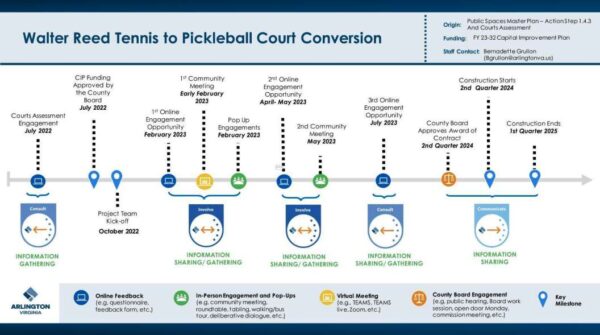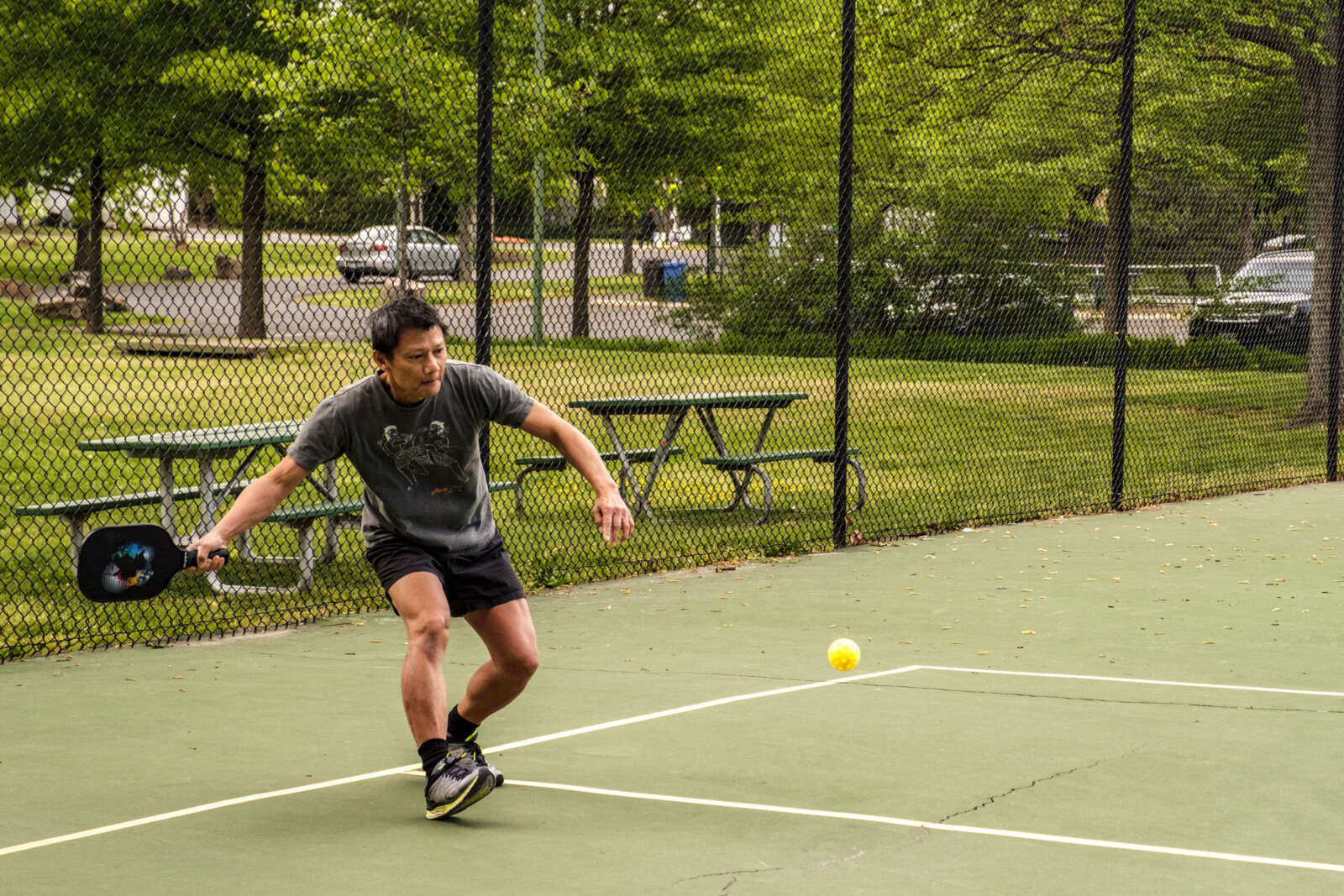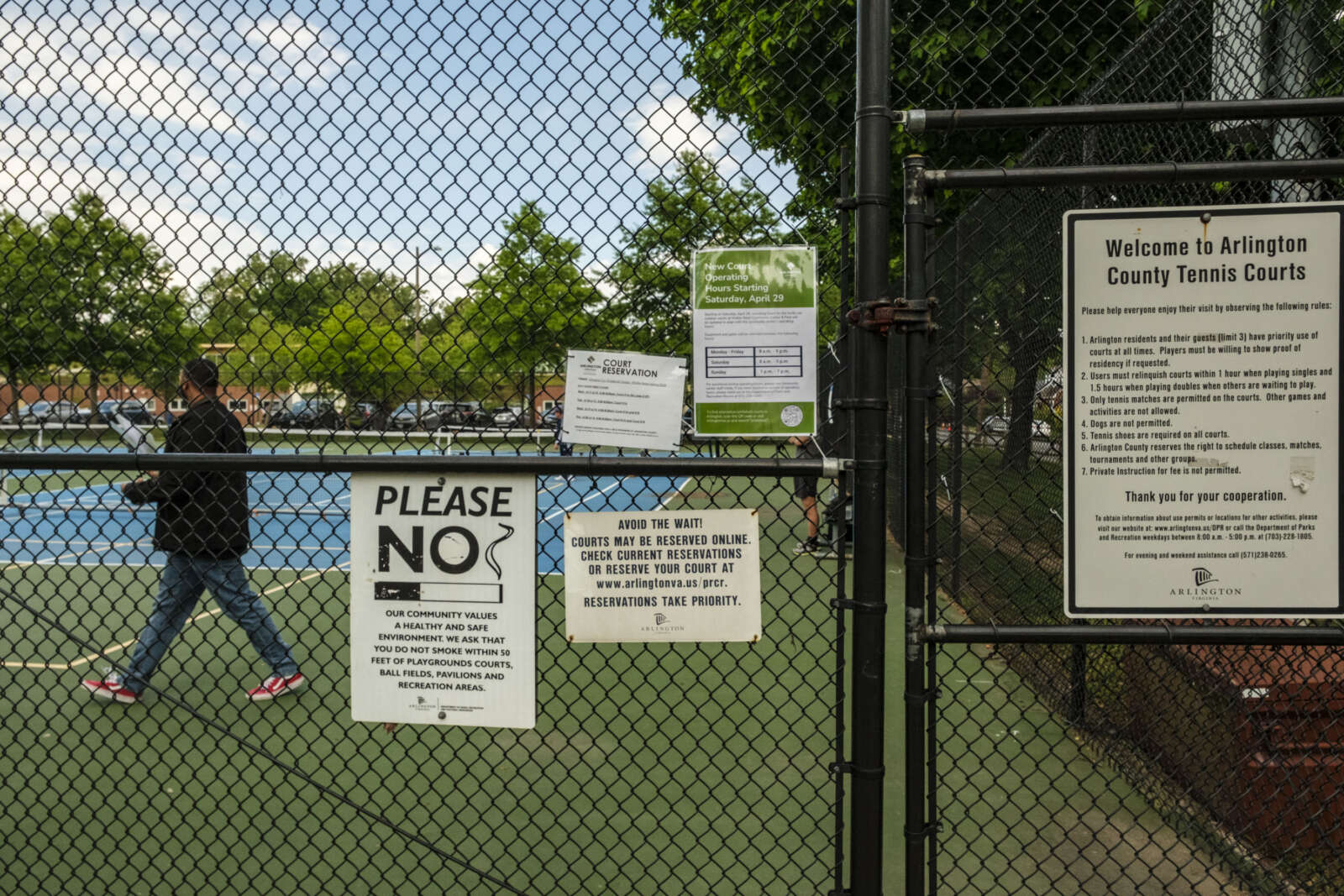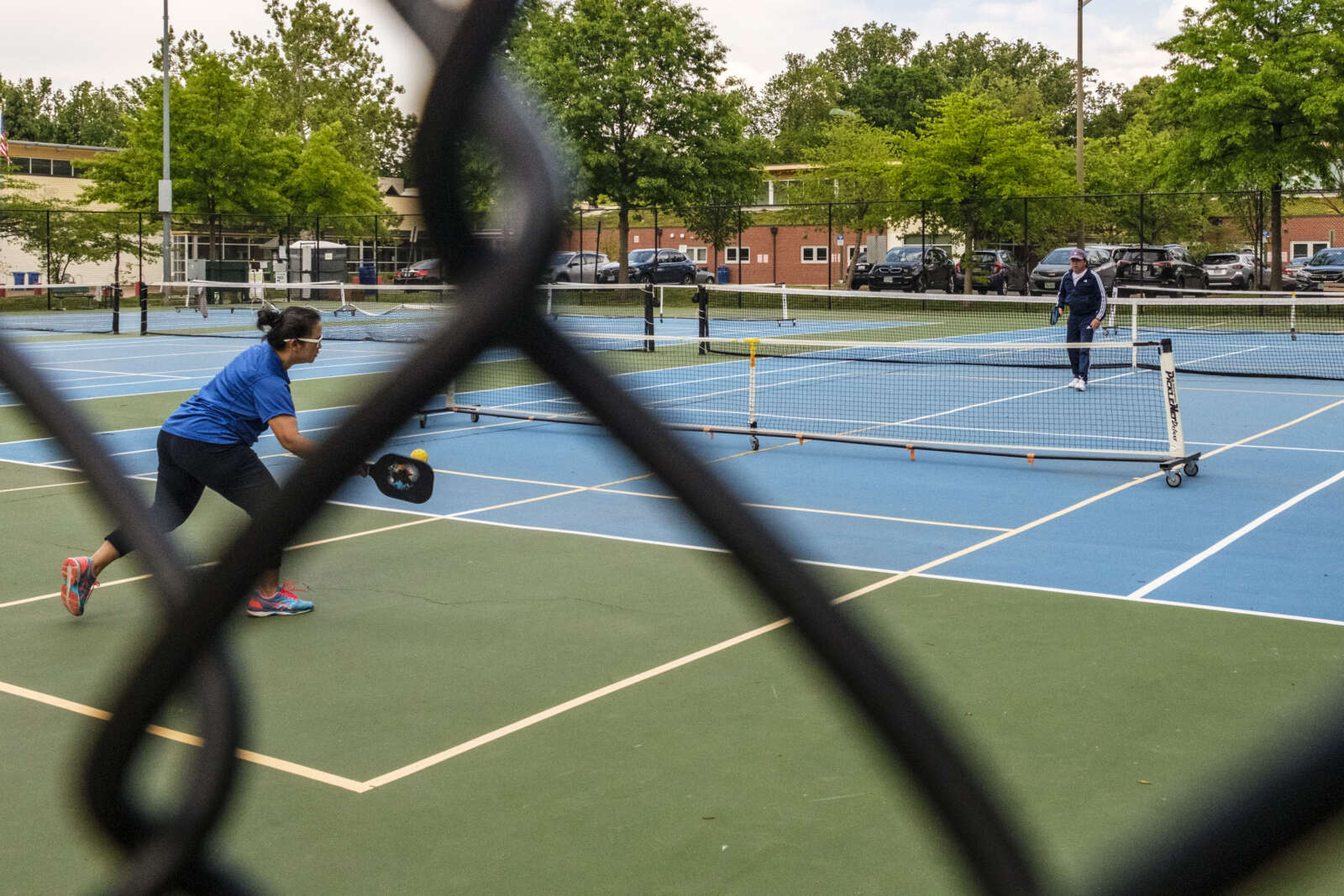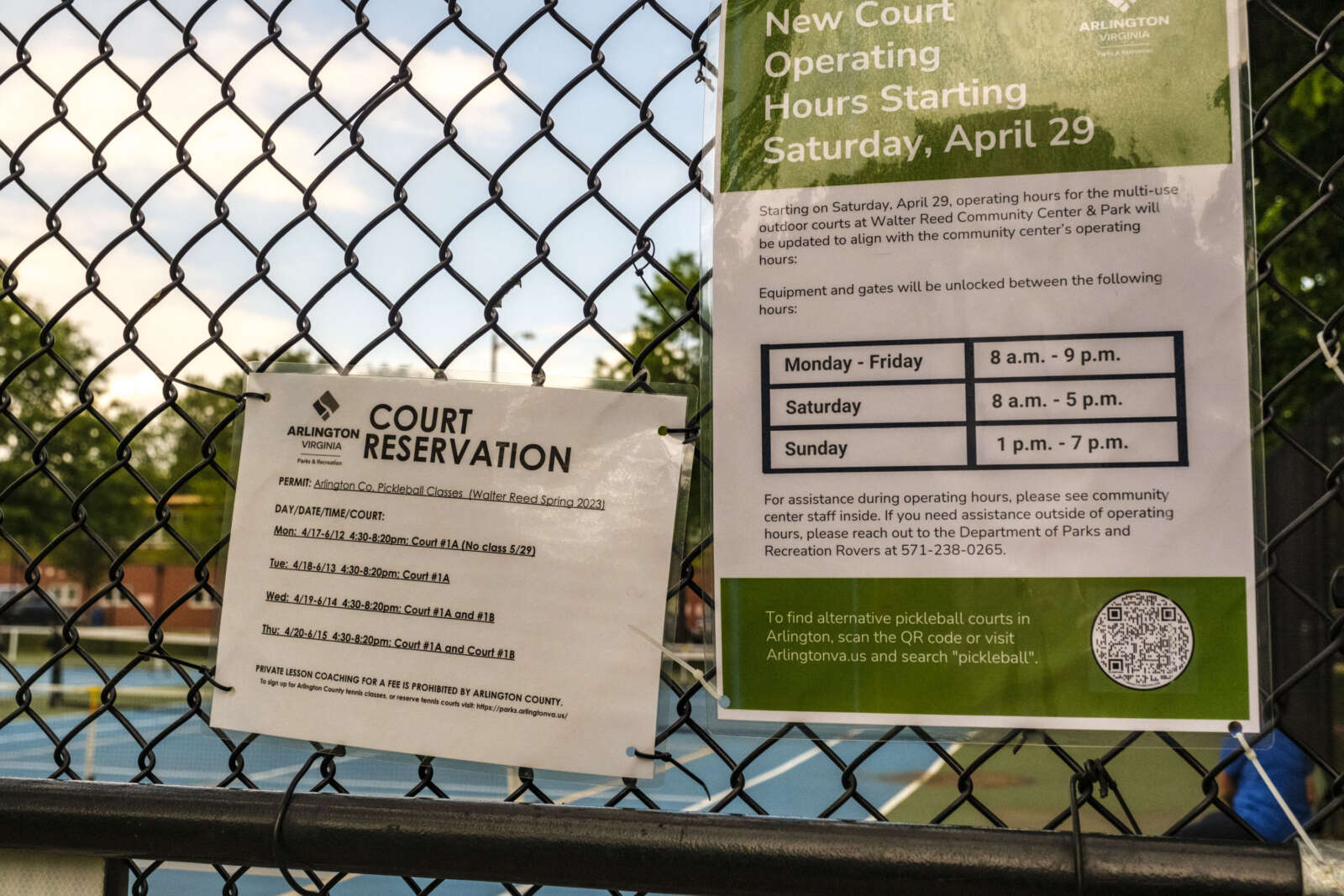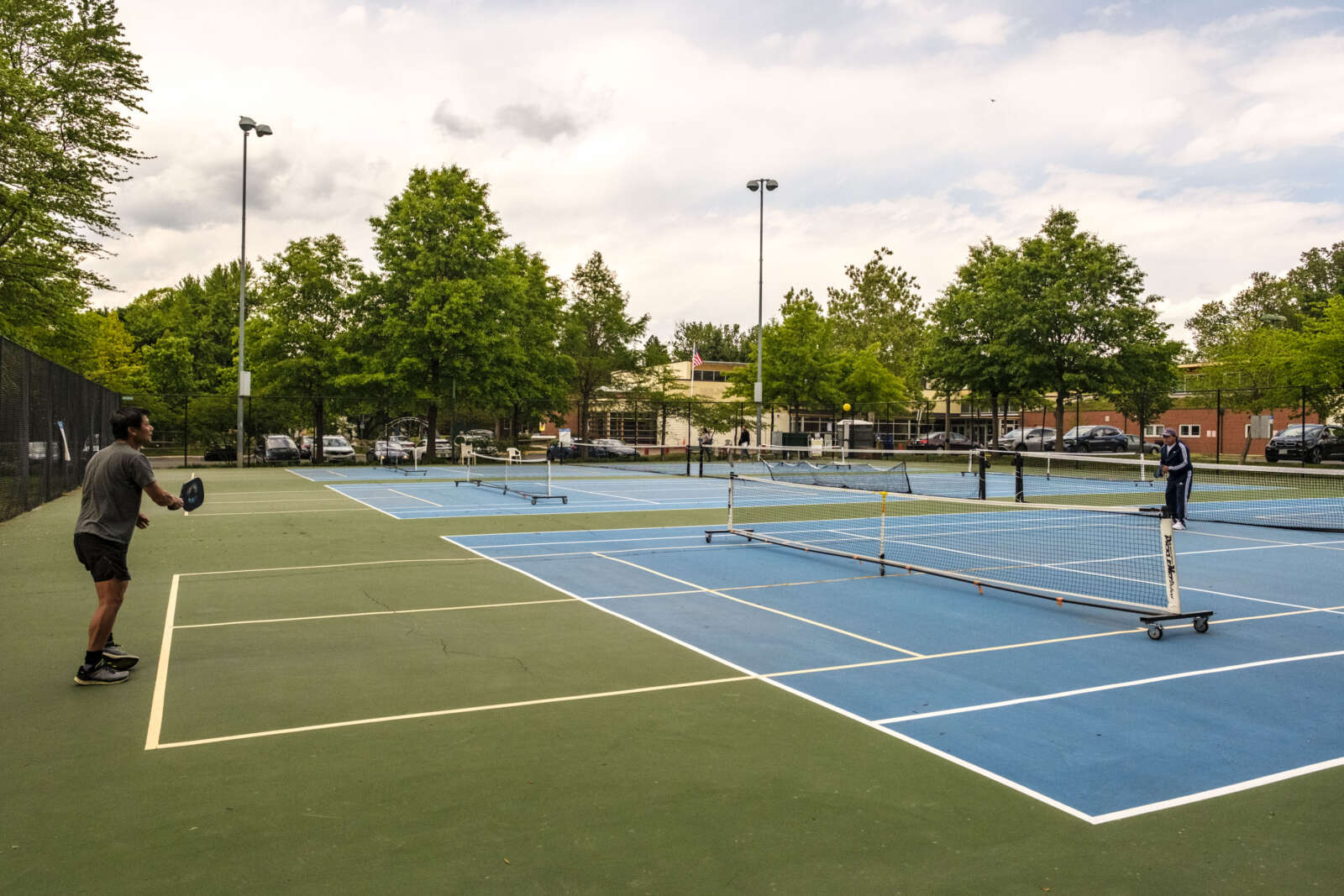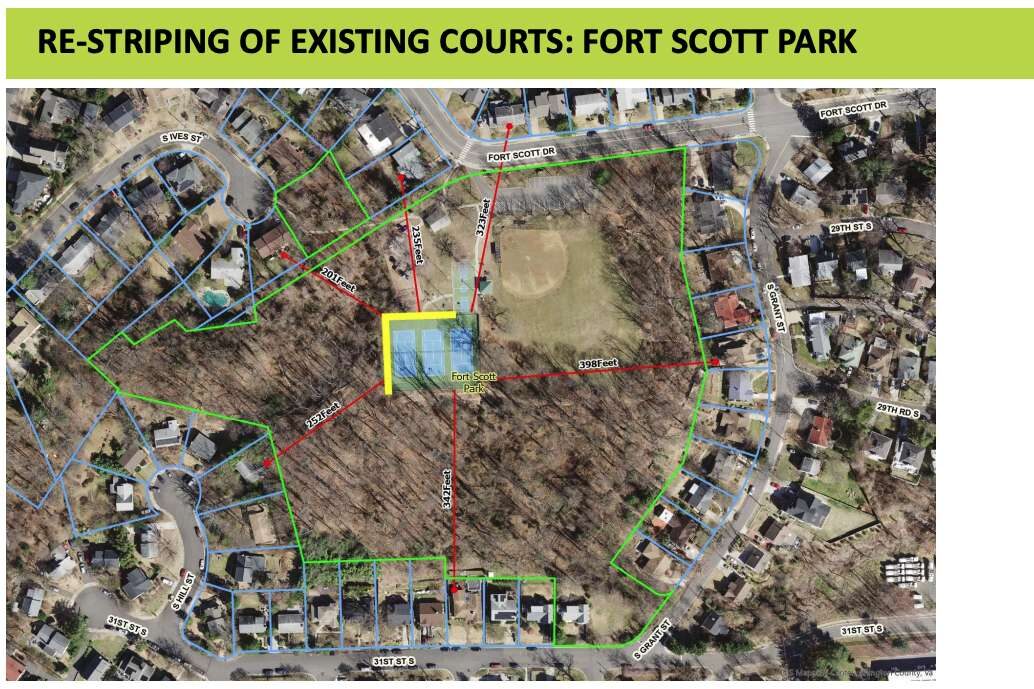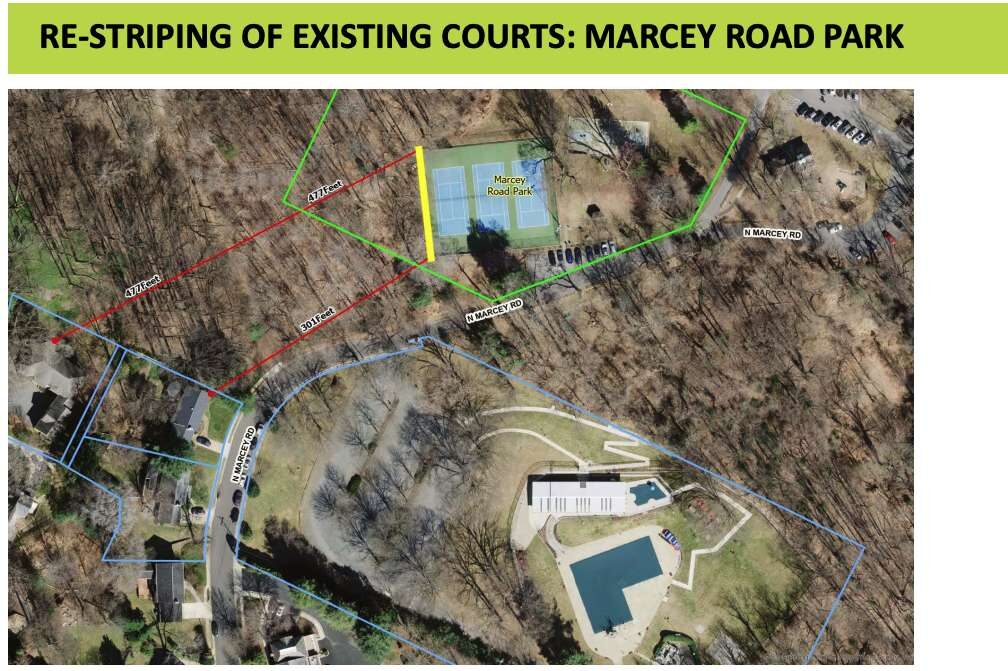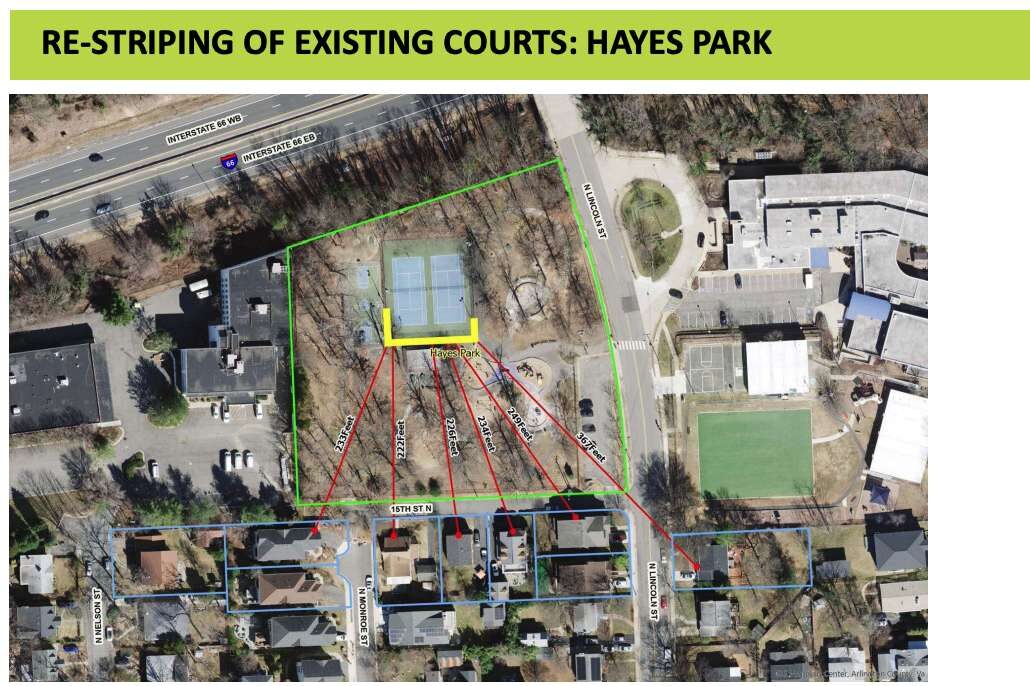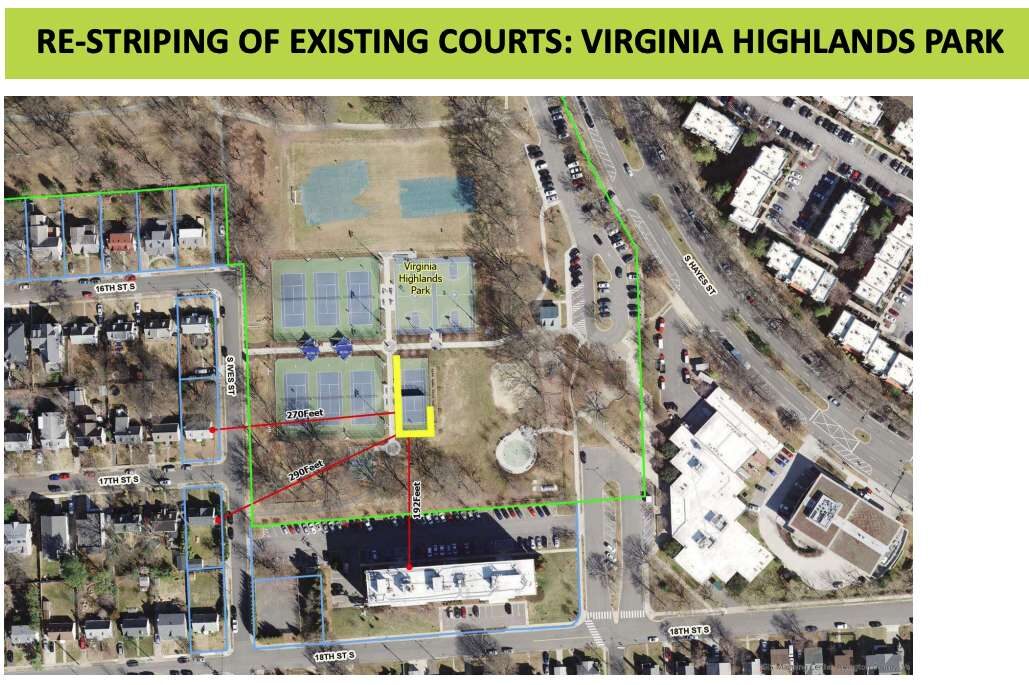One person’s vacant building is another’s future pickleball facility.
Not to be topped by a County Board candidate’s suggestion to put pickleball facilities at the condemned Key Bridge Marriott, Board Vice-Chair Libbey Garvey mulled whether vacant office buildings could be retrofitted for courts.
“We’ve got these office buildings that are kind of empty, and we’re trying to figure out what to do with them,” she asked at the Board’s Tuesday meeting. “Is that a possibility?”
Already recognized in some rankings as a great place to play pickleball, Arlington County is looking to add more courts in response to the sport’s booming popularity. But it has found itself in a pickle, balancing pressure to add courts with pressure to address pickleball-related noise and land use concerns from some neighbors.
During the Arlington County Board conversation with the Dept. of Parks and Recreation, members took a diplomatic approach, in contrast to the threats of legal action, accusations of bullying and public urination, and late night TV lampooning that have characterized the ongoing local pickleball battle.
In addition to Garvey’s vision for pickleball taking over vacant office buildings, others floated nudging private clubs to get in on the fun. They said private courts could ease the burden on the local government to add facilities, mute the “pop” the paddles emit and help address the stubborn office vacancy rate.
Such possibilities would require working with Arlington Economic Development, said Dept. of Parks and Recreation Director Jane Rudolph.
“There’d have to be an evaluation with others who understand layouts of office building and warehouses and things and with [Arlington Economic Development] colleagues about what we could be doing in existing private spaces and if they could be built out,” she said.
Arlington Economic Development’s Director of Real Estate Development Marc McCauley told ARLnow that zoning changes the Arlington County Board approved on Saturday do open up opportunities for private pickleball facilities in vacant retail and commercial spaces.
“These private facilities, such as national operator Chicken N Pickle” — a sport, restaurant and event space — “are emerging concepts that could theoretically relieve some demand pressure on use of pickleball courts in public facilities,” McCauley said. “Challenges may include ceiling height, floor plate size and noise attenuation, but those issues would need to be studied by a property owner and potential tenant on a case by case basis.”
Another example is Kraken Kourts, with two locations in D.C. that offer pickleball, axe throwing, roller skating and a rage room — a place to break things to let off steam.
Board Chair Christian Dorsey asked whether DPR has considered how the the county could “encourage some operators to set up some pickleball facilities so that this doesn’t become solely a government responsibility.”
In communities known for their pickleball amenities, Dorsey observed there are major, private indoor-outdoor facilities which sometimes have “really substantial membership costs or drop-in fee costs.”
This includes, Board member Takis Karantonis noted, “some very private places with a lot of tennis courts — a lot of new tennis courts, actually.”
Meanwhile, DPR will soon begin restriping tennis courts at Fort Scott Park, Hayes Park, Marcey Road Park and Virginia Highlands Park. Each restriping project is expected to take about two weeks and the changes will take place from June to September, according to Rudolph.
Thanks to pickleball’s more compact play area, the county will gain 14 pickleball courts by restriping eight existing tennis courts and two practice areas, while still having 82 public tennis courts leftover, per DPR’s presentation.
“The opportunity to play pickleball will be spread fairly evenly throughout the county, meaning easier access for users which will, at the same time, help to reduce intensity of play for neighbors at any one location,” Erik Beach, a planning director for the parks department, told the Board.
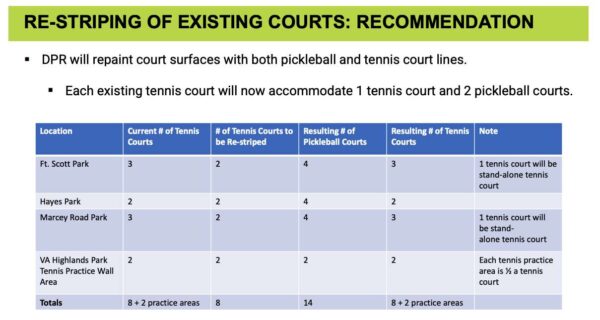
Courts can be used from sunrise to 10 p.m., where lighted, and until sunset where unlit. Courts will be rotated for certain uses and will operate on a reservation system.
At Walter Reed Community Center, meanwhile, the county has plans to spend $1.5 million to build dedicated pickleball facilities that support more players.
The center has become ground zero for the pickleball wars because it is already the epicenter for complaints about the incessant “pop” and other quality-of-life issues attributed to higher traffic.
In an olive branch to afflicted neighbors, DPR staff said that, starting this Saturday, playable hours will further be limited to the 80 hours a week the community center is open.
- Monday-Friday: 8 a.m.-9 p.m.
- Saturday: 8 a.m.-5 p.m.
- Sunday: 1-7 p.m.
Originally, play was allowed from sunrise to 11 p.m., or 112 hours per week. Last fall, DPR reduced the hours to 98 per week, from 7 a.m.-10 p.m.
Court lights will be retimed to the new schedule and the facilities will otherwise be locked — though that has not stopped people in the past, Rudolph said.
DPR is changing its renovation plans for Walter Reed in response to feedback, proposing six courts, down from nine, located far from neighbors and surrounded by acoustic fencing, sound walls and landscaping.
Beach said the county never intended the center to be “a premier facility, tournament venue or regional destination.”
“DPR’s goal is to find solutions that are measured and responsive to needs of the community and create a space that improves user experience while balancing neighbors’ concerns,” he continued.
Several neighbors listening in on Tuesday came away pleased with the decision to reduce the number of courts, shorten hours and repaint the basketball court — currently also a pickleball court — just for basketball.
“We remain concerned about the noise,” Ashley Nelsen told ARLnow. “It’s a step in the right direction, however, constant, high-pitched noise less than 100 feet from some residents homes for 80 hours a week remains problematic for us. We understand there are ‘plans’ for sound mitigation in the future but no solution for our current situation. Two years is too long to wait.”
The parks department will solicit public feedback on the revised plan next month. People will be asked if the project should be paused, in light of some requests to that effect.
“While pausing is a possibility, DPR would like to note that the courts are at Walter Reed are in poor condition and in need of repair — and that the repair was deferred to this core project,” Beach said. “Additionally, and most importantly, during a pause, pickleball play would go on and neighborhood issues would remain.”
Beach noted that the DPR is seeking volunteer pickleball ambassadors who would promote diplomacy by working with neighbors and the parks department to identify and address problems promptly.
If everything goes as planned, a final concept could be ready for Board review in July and a construction contract procured a year later. Construction could last through early 2025.
